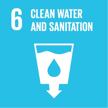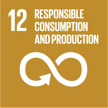About this project
Water supply and sanitation in Jordan is characterized by severe water scarcity, which has been exacerbated by several regional conflicts and forced migration, primarily from Palestine, Iraq and Syria. In this “safe heaven without water,” relatively high population growth, depletion of conventional resources and the impacts of climate change are likely to aggravate the situation soon. Currently, COVID 19 is further impacting rural and marginalised communities. Are the challenges Jordan faces absolute? How can the country ensure sustainable water access amid growing challenges of climate change and pandemics? What are “hidden” ecological, socio-cultural and technological reserves the new generation of “water leaders” needs to immediately tap into?
From the nation-state’s perspective, the untapped potential is three-fold: more use of reclaimed water in agriculture and industry, increase of non-renewable groundwater abstraction and desalination of sea-water (Ministry of Water and Irrigation 2016). In consequence, the state’s insufficiency-driven reasoning favours top-down management, the supply side concentration and the construction of “megaprojects”; the strategy common to many Arab nations.
However, what makes the region water-scarce goes far beyond environmental limits. As long-term fieldwork of water governance specialist Hussam Hussein (2016) showed, there is a strong counter-narrative, which resonates primarily in the community of donors, academia and NGOs: water is made scarce. Due to mismanagement (non-revenue water, water theft, water pricing) and lacking adaptive community-oriented projects, the society fails to implement sweeping bottom-up measures in combating structural water deficit and helping its most vulnerable members.
Looking from the perspective of water users, rooftop water tanks and bottled water consumption constitute lived reality for everyone. Despite rationing schemes (app. 8 hours in Amman per week, for instance), the UN evaluated the access to water and sanitation as one of the best in the MENA region (WHO 2008). The basic infrastructure seems to be in place, but how long could it hold the promise of “delivering stability”? The signals of unrest and dissatisfaction in rural communities are mounting (Greenwood 2014). For instance, the originally nomadic population, Wadi Rum Bedouins, keeps attacking the Disi water conveyance system. How to foster new “water consciousness” and inspire consolidated action when water becomes a marker of existential anxiety (World Bank 2018)? Furthermore, how to do so when it is being transferred from the sphere of “normal politics” into the realm of securitised “state emergency politics” (Weinthal 2015)?
The integrated water management will not be possible without improved community resilience and vice versa. To meet the efforts of the state half-way, it is crucial to undertake bottom-up projects which aggregate more inter-generational energy and mobilize people towards identifying and exploiting untapped regional potentials. If certain cultural practices make water scarcer, cultural change is the key we are looking for. Our team thus strongly believes such “innovative initiatives” should be fuelled by collective cultural experiences and public expert-stakeholder encounters. Providing a platform to youth and marginalised communities, “Beyond Scarcity” project will allow them to become more aware of the situation and engage in working towards innovative solutions.
Goals and Objectives
Project Plan and Objectives
“Beyond Scarcity” programme aims to contribute to Youth for Water & Climate themes: 3. Water-related Risks and 4. Sharing Water.
In the programme, we will organise five free community-focused events across Jordan. In our selection of places, we will cross the geography of inequality, which pushes the poor to the outskirts and lavishly sustains well-off communities. The proposed locations, from North to South, are Irbid (the agricultural center in Jordan), Amman (the capital city dependent on “desert water”), Ma’an (Bedouin “stronghold” with no access to water pipeline), Wadi Rum desert (Bedouin villages and the main source of underground water) and Aqaba (Special Economic Zone and the coastal city dependent on “desert water”).
In terms of weather conditions, the best dates for the events are 19 October - 1 November 2020. The specific dates and event locations will be arranged in collaboration with “Beyond Scarcity” local partners.
Respecting public health rules and regulations regarding the current pandemic, each event will be composed of three activities:
WORKSHOP: First, in collaboration with our network of stakeholders, we aim to organise youth engagement workshops (app. 2h, balanced gender, professional facilitation) to identify, what we call, Water action risks and potentials while doing an engaging group SWOT analysis.
FILM SCREENING: Second, a documentary film of Pavel Borecky - LIVING WATER (2020, 70 min., Jordan/Switzerland) will be screened at the local cultural venue. The film portrays the struggle of Wadi Rum Bedouins for more water, the use of water in large-scale agriculture and difficult challenges of water engineers in cities. The themes of sharing, emergency, interdependence and hope will be exposed. If a relevant venue is not available, the Royal Film Commission will provide us with a mobile projection screen and necessary service.
PANEL DEBATE: Third, after the screening, in the moderated panel debate of invited experts and community members, we will link and discuss SWOT results, film narrative and regional potentials (1 hour), particularly reflecting on the challenges before, during and after the COVID 19 pandemic: what can we learn from the COVID 19 crisis? The focus of each debate will recognise local context and specifics, be them social, cultural, economic or ecological. We will look “beyond scarcity”, make the general public in the audience aware of Water action risks and potentials, and inspire more intergenerational activism.
Project Goals
- amplify the voice of youth in the intergenerational debate,
- support the growth of the new generation of “water leaders” in Jordan,
- boost ongoing bottom-up water actions and inspire new ones,
- highlight the actors of environmental activism,
- collectively identify Water action risks and potentials in the respective community,
- bridge the gap between youth, decision-makers and academia,
- understand the lived experiences of water access challenges before, during, and after COVID 19,
- foster the intersection of public health, climate change and water risks in public debate
- work beyond debilitating existential anxieties towards specific projects and a more sustainable future.
Expected result
The expected results are:
- 5 well-received and well-attended events (workshop, screening, panel debate),
- 5 SWOT analysis of Water action risks and potentials as identified by various youth groups across Jordan - to be shared with the workshop participants and community leaders,
- 5 video-documented debates (if agreed upon by all panellists) - to be shared via collaborating media network in Jordan,
- Youth Water Action Recommendation Paper - co-authored by project leaders, published as an open-access document - to be shared with the key water actors across the country and the international community,
- Photographic documentation of the events - shared via social networks of collaborating partners, community members and water experts.
References
Gorelick, Steven. 2017. “Increasing drought in Jordan: Climate change and cascading Syrian land-use impacts on reducing transboundary flow.” Science Advances, 3(8).
Greenwood, Scott. 2014. “Water Insecurity, Climate Change and Governance in the Arab World.” Middle East Policy, 21(2).
Hussein, Hussam. 2016. An analysis of the discourse of water scarcity and hydropolitical dynamics in the case of Jordan. University of East Anglia, a doctoral dissertation.
Ministry of Water and Irrigation Jordan. 2016. “National Water Strategy 2016-2025”.
Weinthal, E., Zawahri, N., & Sowers, J. 2015. “Securitizing Water, Climate, and Migration in Israel, Jordan and Syria.” International Environmental Agreements. Dordrecht: Springer Science+Business Media.
World Bank. 2018. “Beyond Scarcity: Water Security in the Middle East and North Africa”. Washington, DC: World Bank.
World Health Organization; UNICEF. 2008. "Joint Monitoring Program”.
Sustainable Development Goals
About me / organisation
Pavel Borecký and Hussam Hussein
Pavel (born 1986 in Prague) holds MSc in Sustainable Development (Prague) and MA in Social Anthropology, Audiovisual Ethnography (Tallinn). As a holder of the Swiss Government Excellence scholarship and University of Bern lecturer, he is currently finishing multimedia PhD project "Living Water" on socio-cultural ramifications of water scarcity in Jordan - Disi water case study. In his ethnographic research practice, Pavel often crosses boundaries of science, arts, activism and development.
In his professional career, Pavel co-founded Anthropictures, the first applied anthropology company in the Czech Republic, and completed several applied research projects in Serbia, Peru, Estonia and in his home country. Pavel’s latest ethnographic films "Solaris" (2015) and "In the Devil’s Garden" (2018) focused on the cultures of consumption and human/animal relations. The films were screened at numerous film festivals and conferences in Europe and abroad. Pavel also curates EthnoKino, the film programme in Bern, and convenes European Applied Anthropology Network.
---
Hussam (born 1985 in Kuwait) is a Departmental Lecturer and Research Fellow in the Department of Politics and International Relations, Oxford University. He obtained his PhD in international development at University of East Anglia – Norwich, UK. His PhD thesis investigated the discourse of water scarcity in the case of Jordan, and its impacts on transboundary water governance.
After his PhD, he worked as a Postdoctoral Research Fellow at the American University of Beirut, investigating hydropolitics in the Levant region, and as a Research Associate at the University of Kassel working on the Water-Energy-Food Nexus in the Mediterranean Region. Hussam also worked for the Italian Embassy in Amman, Jordan, European Parliament, and for the International Finance Corporation. He worked as an international consultant for UNICEF, the World Bank, and BGR.


